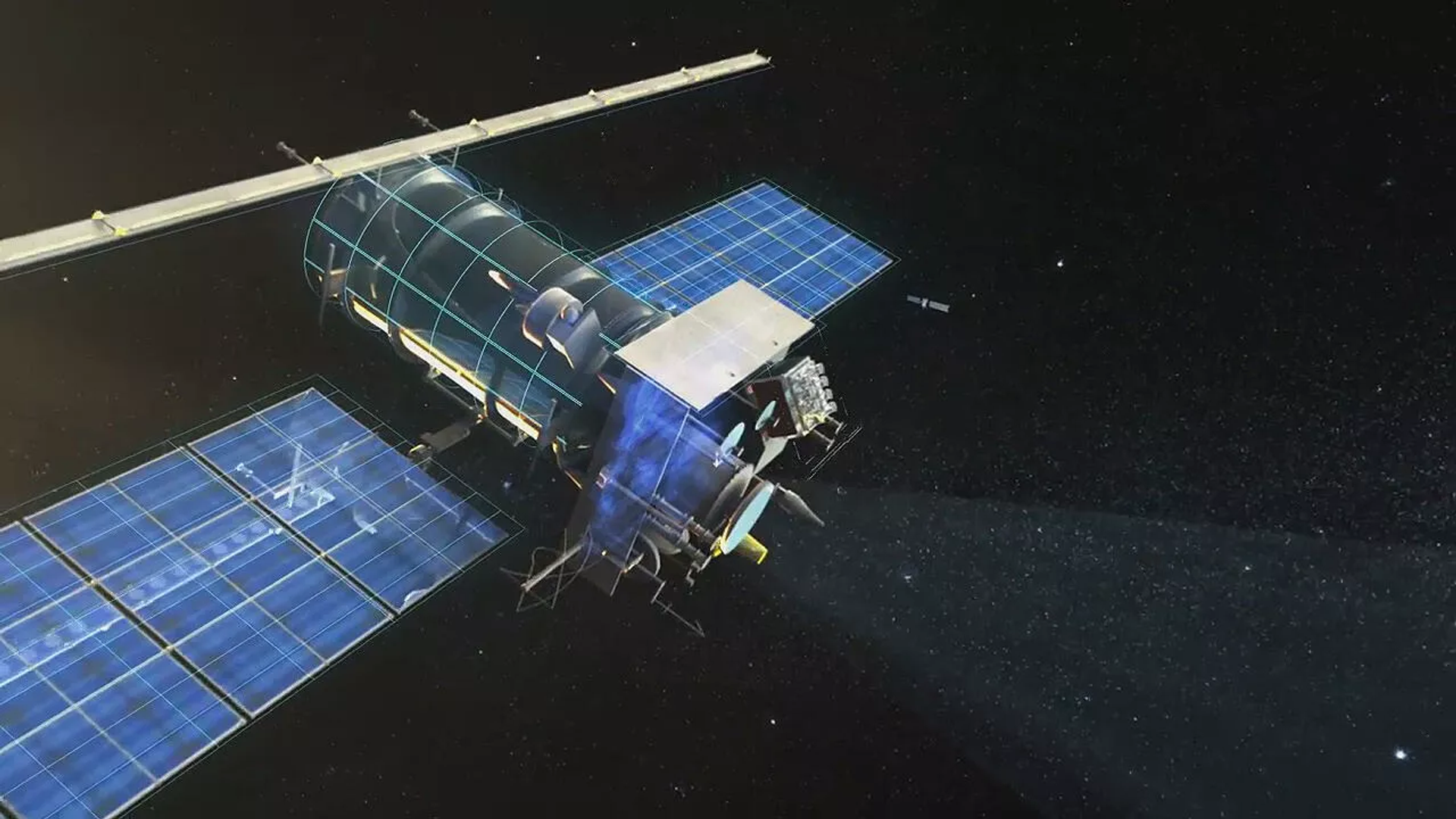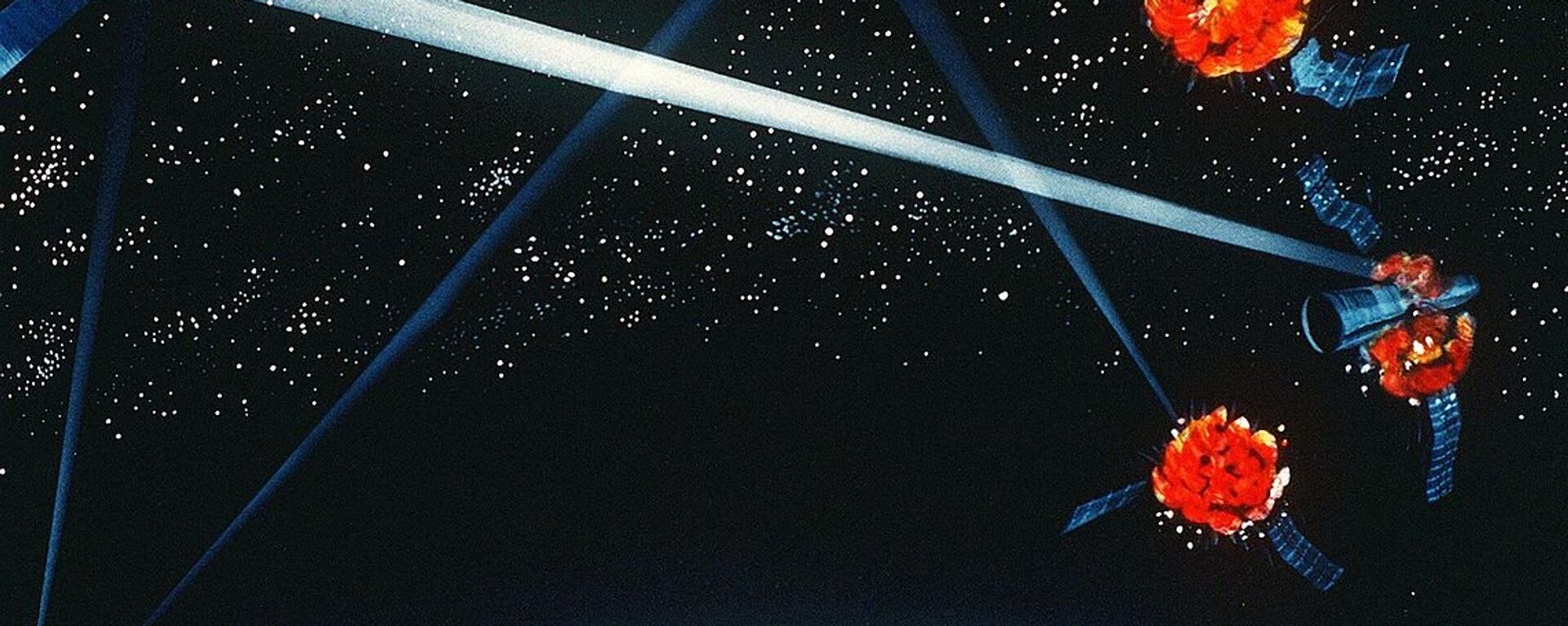https://sputnikglobe.com/20240527/rostec-delivers-new-components-for-russias-first-ever-communication-satellite-1118650238.html
Rostec Delivers New Components for Russia's First-Ever Communication Satellite
Rostec Delivers New Components for Russia's First-Ever Communication Satellite
Sputnik International
Rostec enterprises have developed actuators for microwave switches of the Express-AMU4 satellite and began delivering them; these devices will allow the first Russian communications satellite to transmit data and provide communications
2024-05-27T10:33+0000
2024-05-27T10:33+0000
2024-05-27T10:33+0000
russia
rostec
baikonur
ruselectronics
new satellites
satellite
telecoms satellite
satellite data
https://cdn1.img.sputnikglobe.com/img/107929/50/1079295051_0:0:1280:720_1920x0_80_0_0_b4865d1561da5151710c7e295350f82b.png
Rostec and its enterprises have completed the development of actuators for the microwave switches of the Express-AMU4 satellite and have started their delivery. These devices will enable the first-ever fully Russian-made satellite to transmit data and provide communications, as reported by the Rostec press service. Actuators are a functional element of automatic control systems. These products include electric motors, electric and hydraulic drives, relay devices, and manipulators. On the Express-AMU4 satellite, they will enable microwave switches to shift between different radio signals – a feat necessary for data transmission, the creation of fixed and mobile communications, and digital television broadcasting. The Express-AMU4 spacecraft will be the first completely domestic communications vehicle. The launch into geostationary orbit - about 36,000 kilometers above the Earth - is expected in 2026 on a Proton rocket from Kazakhstan’s Baikonur Cosmodrome.
https://sputnikglobe.com/20240521/why-us-opposes-efforts-to-keep-space-weapons-free-1118569943.html
baikonur
Sputnik International
feedback@sputniknews.com
+74956456601
MIA „Rossiya Segodnya“
2024
Sputnik International
feedback@sputniknews.com
+74956456601
MIA „Rossiya Segodnya“
News
en_EN
Sputnik International
feedback@sputniknews.com
+74956456601
MIA „Rossiya Segodnya“
Sputnik International
feedback@sputniknews.com
+74956456601
MIA „Rossiya Segodnya“
rostec, space exploration, russian space exploration, communication satellite russia, russia space, rostec space
rostec, space exploration, russian space exploration, communication satellite russia, russia space, rostec space
Rostec Delivers New Components for Russia's First-Ever Communication Satellite
The launch of the satellite into geostationary orbit is expected in 2026 with the help of Proton spacecraft.
Rostec and its enterprises have completed the development of actuators for the microwave switches of the Express-AMU4 satellite and have started their delivery.
These devices will enable the first-ever fully Russian-made satellite to transmit data and provide communications, as reported by the Rostec press service. Actuators are a functional element of automatic control systems. These products include electric motors, electric and hydraulic drives, relay devices, and manipulators.
On the Express-AMU4 satellite, they will enable microwave switches to shift between different radio signals – a feat necessary for data transmission, the creation of fixed and mobile communications, and digital television broadcasting.
“We paid special attention to the fault tolerance and the telemetry system, when developing the new Electronic Component Base, since the actuators will be used in the spacecraft’s payload. By mid-2025, we intend to transfer the entire planned volume of components to the customer,” according to the press service, quoting Alexei Dymovskikh, the CEO of the design bureau.
The Express-AMU4 spacecraft will be the first completely domestic communications vehicle. The launch into geostationary orbit - about 36,000 kilometers above the Earth - is expected in 2026 on a Proton rocket from Kazakhstan’s Baikonur Cosmodrome.



